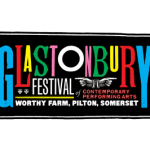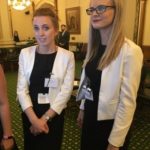 So a few days ago I returned, tired, dirty and covered in glitter, from possibly one of the most awesome experiences of my professional life. With my previous incarnation as a tourism and events research assistant, I thought I was done with the whole working events part of my role and with the few dodgy years of Air Festival weather previously. I wasn’t that sad to see it go when I moved to HSS. What was different this time was that I was not collecting data (well, we did a bit) but we were disseminating our research to an unbelievably wide audience, who not only engaged with our materials but wanted to know more about what we did here at BU.
So a few days ago I returned, tired, dirty and covered in glitter, from possibly one of the most awesome experiences of my professional life. With my previous incarnation as a tourism and events research assistant, I thought I was done with the whole working events part of my role and with the few dodgy years of Air Festival weather previously. I wasn’t that sad to see it go when I moved to HSS. What was different this time was that I was not collecting data (well, we did a bit) but we were disseminating our research to an unbelievably wide audience, who not only engaged with our materials but wanted to know more about what we did here at BU.
Let me give you a little context as to how we made our way to the Science Tent in the Green  Futures field at Glastonbury Festival 2017. A call was put out just a few months ago asking for ideas to represent Bournemouth University in the Southampton University Science tent. Dr Sally Lee, a research fellow here at the National Centre for Post-Qualifying Social Work and Professional Practice put in an idea to present our Financial Scamming work and was successful. We design most of our materials in house at the centre, producing a wide range of publications, workbooks, and posters, so Sarah Wincewicz and I got to it.
Futures field at Glastonbury Festival 2017. A call was put out just a few months ago asking for ideas to represent Bournemouth University in the Southampton University Science tent. Dr Sally Lee, a research fellow here at the National Centre for Post-Qualifying Social Work and Professional Practice put in an idea to present our Financial Scamming work and was successful. We design most of our materials in house at the centre, producing a wide range of publications, workbooks, and posters, so Sarah Wincewicz and I got to it.

Designing a board game, a card game and Sally worked on an interactive activity using UV lights, we really had something to suit everyone and of different levels of difficulty. I am sure Sally will blog next week about the impact of the experience in relation to financial scamming. What I would like to focus on is the sheer scale of the impact we made by going to an event like Glastonbury.

Over the period of 5 days we must have engaged with over a thousand people of all ages and demographics. What particularly struck me was how much the people we spoke to cared, I mean really cared, about other people.We were in the science tent, which was great, but we were the only team representing the social sciences and I would have loved to be part of a bigger team working in this area because these are the people who will really change the future. I talked with students and young people sure, and was more than a little concerned about how little they knew about protecting themselves, particularly on-line, but I also talked to a host of professional groups, from nurses to police, social workers (of course), carers of all ages, and computer programmers to directors and commissioners.
 I would love to be involved in something like this again, although next time I would definitely take Sarah with me as she is by far a more experienced camper and way more social-able than I am, and not quite so high-maintenance! I would also love to get the brilliant work that we do here at BU out there with different groups, people really do care about health and social care, they care about their parents and grandparents and each other, and the future of our country. It is not only a great opportunity to get word out about BU and our research but also address the recruitment and retention issues seen across the health and social care sectors! So if anyone is thinking of engaging in events like this, let us know! We would love to be part of this brave new world!
I would love to be involved in something like this again, although next time I would definitely take Sarah with me as she is by far a more experienced camper and way more social-able than I am, and not quite so high-maintenance! I would also love to get the brilliant work that we do here at BU out there with different groups, people really do care about health and social care, they care about their parents and grandparents and each other, and the future of our country. It is not only a great opportunity to get word out about BU and our research but also address the recruitment and retention issues seen across the health and social care sectors! So if anyone is thinking of engaging in events like this, let us know! We would love to be part of this brave new world!



 We’re off to Glastonbury!!
We’re off to Glastonbury!! Glastonbury Festival 2017 – Take your research to the Green Futures Field
Glastonbury Festival 2017 – Take your research to the Green Futures Field Last Call – Want to take your research to Glastonbury?
Last Call – Want to take your research to Glastonbury? NCPQSW journey
NCPQSW journey










 SPROUT: From Sustainable Research to Sustainable Research Lives
SPROUT: From Sustainable Research to Sustainable Research Lives BRIAN upgrade and new look
BRIAN upgrade and new look Seeing the fruits of your labour in Bangladesh
Seeing the fruits of your labour in Bangladesh Exploring Embodied Research: Body Map Storytelling Workshop & Research Seminar
Exploring Embodied Research: Body Map Storytelling Workshop & Research Seminar Marking a Milestone: The Swash Channel Wreck Book Launch
Marking a Milestone: The Swash Channel Wreck Book Launch ECR Funding Open Call: Research Culture & Community Grant – Application Deadline Friday 12 December
ECR Funding Open Call: Research Culture & Community Grant – Application Deadline Friday 12 December MSCA Postdoctoral Fellowships 2025 Call
MSCA Postdoctoral Fellowships 2025 Call ERC Advanced Grant 2025 Webinar
ERC Advanced Grant 2025 Webinar Update on UKRO services
Update on UKRO services European research project exploring use of ‘virtual twins’ to better manage metabolic associated fatty liver disease
European research project exploring use of ‘virtual twins’ to better manage metabolic associated fatty liver disease